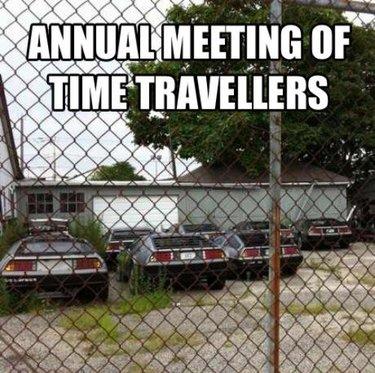Artificial Intelligence Will Put Us Out Of WorkArtificial Intelligence Will Put Us Out Of Work
Forget killer robots. Widespread unemployment is the worst case scenario for humans in the AI future.


Drones, Phones & More: What Tech Will Last A Century?
Drones, Phones & More: What Tech Will Last A Century? (Click image for larger view and slideshow.)
The worst case scenario for artificial intelligence run amok isn't killer robots. It's widespread unemployment.
That's the view expressed by Andrew Ng, chief scientist at Baidu, a Chinese-language Internet search engine, during the 2015 Re-Work Deep Learning Innovation Summit in San Francisco on Thursday.
Ng's remarks coincided with the third warning about AI from a leading technical luminary since October. In a Reddit Ask Me Anything discussion on Wednesday, Microsoft co-founder Bill Gates echoed concerns raised by Elon Musk and Stephen Hawking about the risk that future AI systems could pose to humanity.
"I am in the camp that is concerned about super intelligence," said Gates. "First the machines will do a lot of jobs for us and not be super intelligent. That should be positive if we manage it well. A few decades after that, though, the intelligence is strong enough to be a concern. I agree with Elon Musk and some others on this and don't understand why some people are not concerned."
[See what else Bill Gates fears, and loves. Read Bill Gates Fears AI, Likes Bitcoin, Loves Dogs.]
Ng, a veteran of Google and Coursera, said he doesn't see a path from the state of current technology to the sort of super-intelligence necessary for malevolent cyborgs. But he does see reason to worry about the economic impact of advances in computer learning and expert systems.
"If we succeed in building self-driving cars, that's 3.5 million truck drivers who might have to find a new job," he said.
During the industrial revolution, Ng said, the population had 200 years to shift from 98% farmers to 2% farmers. The transformation brought about by computer technology "will be much faster."
The scenario Ng described has been explored at length in books like The Second Machine Age, and authors Erik Brynjolfsson and Andrew McAfee share Ng's concerns.
But the worst-case scenario isn't destiny. And the speakers at the Deep Learning Innovation Summit were more focused on the potential of machine learning as a tool that enables amazing things than they were on speculative scenarios about humans made redundant and homicidal machines. The fact that computers can understand people and translate their speech and writing into other languages is pretty remarkable.
One of the first speakers at the Summit, Roberto Pieraccini, director of advanced conversational technologies at Jibo, said his company's aim is to bring the first consumer robot into people's homes. Jibo, the name of the robot as well as the company, has been designed to be a playful, helpful assistant. It's about as far as a robot can get from the Terminator, HAL, and other bots gone bad. It's far more likely to get smashed by a human, through carelessness or perhaps annoyance, than the other way around. And its arrival brings new jobs, rather than destroying them.
Simon Osindero, AI architect at Flickr, provided an overview of Flickr's use of machine learning, which helps categorize images according to their content. Machine learning allows Flickr to present images of mountains, for example, when a user enters "mountains" as a Flickr search query. Though that may sound simple enough, it's a difficult problem to get right — it's not simply a matter of matching search keywords with metadata tags.
Osindero said that Flickr has had some success taking its technology beyond categorization and into the realm of subjective judgment. The technology, he said, "allows us to build a model that estimates the perceived beauty of an image."
That possibility prompted a member of the audience to ask about the technology’s potential to generate beautiful content — because code that can recognize beauty should be able to help create it. Osindero acknowledged the possibility is intriguing, even if it's probably not something Flickr will pursue.
It used to be that technologists thought machines were well suited for rote manual labor, but not creative mental labor. Whether or not technologists accepted this underestimation of the potential of machines to sustain the socially pacifying conceit that education offers job security, it's a belief that seems increasingly dubious. Let's hope that we learn to work with machines as they learn to do our work.
What are your biggest fears about artificial intelligence and robots? Will our future be shaped more by AI, like HAL or robots like Jibo? Tell us about it in the comments section below.
Attend Interop Las Vegas, the leading independent technology conference and expo series designed to inspire, inform, and connect the world's IT community. In 2015, look for all new programs, networking opportunities, and classes that will help you set your organization’s IT action plan. It happens April 27 to May 1. Register with Discount Code MPOIWK for $200 off Total Access & Conference Passes.
About the Author
You May Also Like






